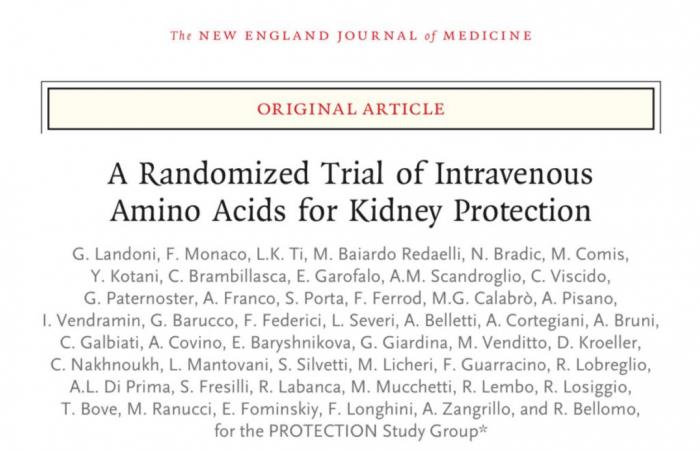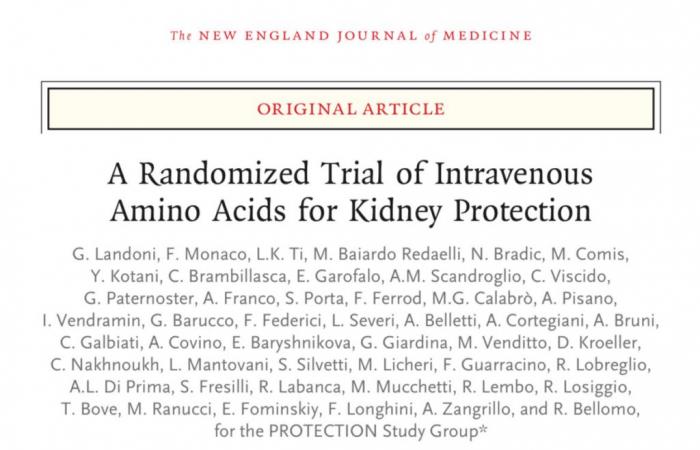Aor San Carlo, Spera: “Important contributions from the Cardioanesthesia of Potenza to the first therapy in the world to prevent acute renal failure, published in the New England Journal of Medicine”
“The Aor San Carlo di Potenza has made an important contribution to the ‘Protection trial’, an international study which has identified the first therapy capable of preventing acute renal failure (ARF) in patients undergoing cardiac surgery with cardiopulmonary bypass” . The general director of the Aor Giuseppe Spera announces this with satisfaction, underlining how “this is an innovative and revolutionary discovery in which all the staff of the complex Cardioanesthesia operating unit of the ‘San Carlo’, directed by Dr. Giuseppe Pittella, participated with great ability and enthusiasm”.
Among the principal investigators is Dr. Gianluca Paternoster, cardioanesthetist at the ‘San Carlo’ hospital in Potenza, who clarifies “how the intravenous administration of amino acids can reduce the incidence of post-operative acute renal failure; it is the first time that the effectiveness of a therapy has been demonstrated in reducing the risk of a complication that has a great impact on survival”.
The study coordinated by professors Giovanni Landoni and Alberto Zangrillo of the Irccs ‘San Raffaele’ hospital in Milan, in collaboration with other Italian and foreign centers, was published in the New England Journal of Medicine (NEJM).
Researchers analyzed more than 3,500 adult patients undergoing cardiac surgery with cardiopulmonary bypass, dividing them into two groups. The first group of 1,759 patients was administered intravenous amino acid therapy, while the remaining 1,752 were administered placebo. AKI (acute renal failure) occurred in 474 patients in the group who received the drug (26.9 percent) compared to 555 patients in the group who received the placebo (31.7 percent), recording a significant reduction in the occurrence of this dangerous complication.
This is the first step towards new therapeutic strategies that could lead to wider uses of this therapy, improving the health of millions of patients every year.
Attached is the title page of the study published in the New England Journal of Medicine
For further information: link to the study https://www.nejm.org/doi/full/10.1056/NEJMoa2403769








